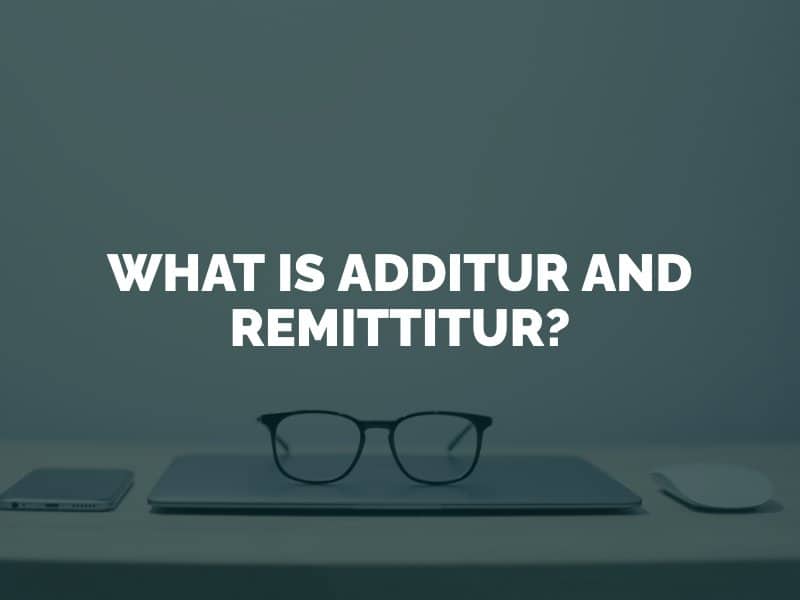You may encounter many legal terms you have never seen before during a personal injury claim in Denver, Colorado. Two of these terms may be additur and remittitur. The courts in Colorado wish to make the trial process as efficient as possible. One way they may save time and resources is by passing additur and remitter motions rather than granting new trials. An experienced personal injury lawyer in Denver can help you understand these terms and how they may apply to your case.

If a jury verdict does not satisfy one of the involved parties, that party can file a motion to either increase (additur) or decrease (remittitur) the amount awarded. Filing a motion for additur means to make a request to the trial courts to increase the amount a jury awarded a plaintiff. If a judge in Colorado denies a motion for a new trial, additur is a required condition.
Additur is only allowed in state justice systems, not federal. A defendant must approve a request for additur, but a plaintiff does not. Filing a request for additur is only appropriate when an attorney believes the trial jury made a mistake, such as misinterpreting a judge’s jury instructions, delivering a verdict as a result of prejudice or discrimination, committing a miscarriage of justice, or delivering a verdict due to corruption within the court.
Additur is not an appropriate request when based only on the belief that a jury verdict is too low. Additur is also not an option if the filing party simply does not agree with the jury’s verdict. For a trial court to grant a motion for additur, the filing party must present proof that the amount granted by the jury is grossly inadequate to cover the victim’s losses, or that the verdict arose out of some form of injustice committed against the plaintiff.
A jury may assign an award that is grossly excessive in relation to a plaintiff’s damages. In this scenario, a judge may demand remittitur, or a reduction of the award. Filing a motion for remittitur means a party believes the jury awarded a plaintiff an amount that is unreasonably excessive for the plaintiff’s economic and noneconomic losses.
If a judge grants a motion for remittitur, he or she believes a mistake with the trial or a miscarriage of justice warrants a reduction of the jury’s verdict. A plaintiff cannot reject an order for remittitur, even if he or she does not wish to give up a portion of a judgment award. The plaintiff must obey a judge’s command.
In general, an award for punitive damages is not enough to lead to an order for remittitur in Colorado. Punitive damages are assigned in some cases to punish the defendant for gross negligence or malicious intent to harm. The only time punitive damages may lead to remittitur is if a judge believes the plaintiff received an excessive amount due to prejudice or a material mistake on the jury’s part.
Receiving a judgment award from a jury in Denver may not be the true end of your case. It is possible to encounter a motion for additur or remittitur after the conclusion of a trial. If you discover your personal injury case involves one of these motions, consult with an attorney for assistance. These are complicated legal processes that could affect the amount of your final compensatory award.
Using a lawyer to represent you can ensure the protection of your rights during additur or remittitur after receiving a jury verdict for your initial personal injury lawsuit. Whether you are the plaintiff or defendant, a lawyer can help you understand these motions and how they may impact you financially.